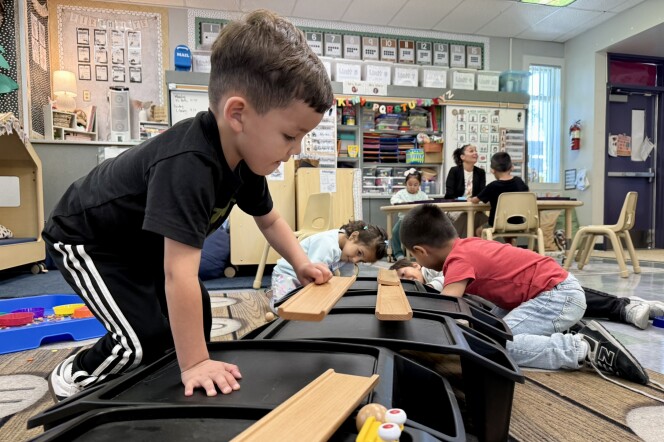With our free press under threat and federal funding for public media gone, your support matters more than ever. Help keep the LAist newsroom strong, become a monthly member or increase your support today.
Underground Cold War Relics As Doomsday Castles?

One clear threat once menaced civilization: nuclear war with the Soviet Union. The Cold War is over, but decades later, some of the fortifications built to fight that war still dot the American landscape.
Four years ago, Larry Hall bought a nuclear missile silo out on the open rolling land north of Salina, Kan. Hall paid $300,000 and spent much more to clean out all the scrap metal and stagnant water.
The missile and four-megaton thermonuclear warhead are long gone, but the thick subterranean concrete and steel walls — built to weather a nuclear blast — aren't going anywhere, Hall says.
"I mean, wow. This thing will protect us against everything. I don't care what your particular threat is. We've pretty much got you covered," he says.
A Condo Tower — Underground
Hall didn't buy this place just for himself. He's built the steel skeleton for a 14-story condo tower here. But this tower doesn't rise up from the prairie. Instead, it descends — almost 200 feet down.
There has been lots of interest, lots of emails, lots of phone calls. [But] the actual purchase is more difficult.
And down in the old missile silo, work on the first single-floor unit is coming along. Hall will market the completed unit for $2 million.
"You're standing right where the Jacuzzi whirlpool tub [goes]," Hall gestures on a walk through the unit. "And you can see the roughed-in plumbing for the two sinks."
Hall also promises to stockpile five years of food rations for each tenant. He says there will be nice stainless steel appliances and a store of sorts, distributing the fresh fish and organic produce he plans to grow here underground.
Hall says this place will be high end, high tech and, he vows, very secure.
"We don't even have to put our people into harm's way," he says. "They're essentially like a video game. We've got remote control guns, we've got infrared motion detectors ... audio detectors."
Big Dreams And Financing Woes
Little of the cutting-edge technology Hall envisions is in place now. He says his dream is currently a pay-as-you-go project.
"One banker was really funny," Hall says. "He put it this way ... 'Let me get this right. You're essentially wanting a mortgage that you're essentially betting that you won't have to repay, because the world's going to hell in a handbasket.'
"I said, 'Yeah, that doesn't sound good, does it?'"
Hall says the lack of financing has toppled hundreds of potential sales.
Ed Peden is co-owner of the firm 21st Century Castles, which specializes in this type of real estate. He estimates that there are about 120 so-called "first generation" missile sites still around, all built in the late 1950s and early 1960s.
Peden says financing troubles like Hall's are common across the market for those underground compounds these days.
"Things have not been selling so well in the last year or two," he says. "There has been lots of interest, lots of emails, lots of phone calls. [But] the actual purchase is more difficult. And it's unfortunately become mostly for the wealthy."
'Just A Life Choice'
Peden got into the market early. He paid $40,000 for his ballistic missile compound near Topeka, Kan., where he has lived with his wife, Dianna, for nearly two decades.
"I know for others who see this — they often will jump immediately to the conclusion that we are preppies," Dianna Peden says. "But it really is just a life choice."
She's talking not about that familiar subculture of the young, wealthy and fashionable, but the group often referred to as "preppers," as in, doomsday preppers.
The Pedens choose to be self-sufficient. They grow some of their food and produce a lot of their own electricity. They like to use their cavernous underground lair not so much for protection, as for parties.
"What's fun is when there's about 20 people sitting around in the circle, and they are all drumming together, and there are dancers in the middle. It's a very exciting environment at that time," Ed Peden says.
The Pedens' place smells of incense and is lavishly decorated with mystical art and artifacts from world religions.
The Pedens says they've transformed a weapon of mass destruction into a shrine to world peace and spiritual development.
Ed Peden says he's not interested in doomsday or Mayan calendar talk. His prediction for 2012 and beyond? Not that the world will end but that the credit crunch eases — making moving into in an old nuclear missile compound just a little more affordable.
Copyright 2024 KCUR 89.3. To see more, visit KCUR 89.3. 9(MDA1OTI3MjQ5MDEyODUwMTE2MzM1YzNmZA004))







